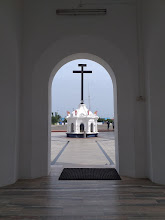The Spirit of Gratitude: A Path to Peace
Gratitude is more than a simple "thank you"—it is a spiritual posture, a way of seeing life through the lens of grace and appreciation. It reminds us that we are never truly alone, that our journey is shaped by the kindness and guidance of others, and ultimately, by the hand of God.
One of the most moving examples of gratitude in modern history is found in the life of Albert Camus, the French-Algerian writer and philosopher. Though he was not traditionally religious, his act of heartfelt appreciation echoes a deep spiritual truth: gratitude transforms not only our relationships but also our souls.
A Heartfelt Letter of Thanks
Camus, who was born into poverty, lost his father in World War I. His mother, partially deaf and struggling to make ends meet, raised him with great difficulty. In the midst of these hardships, a primary school teacher, Louis Germain, saw Camus’s potential and nurtured his love for learning. He encouraged him, mentored him, and helped him secure an education—something that changed the course of Camus’s life.
Years later, after receiving the Nobel Prize in Literature, Camus did something deeply meaningful: he wrote a letter to his former teacher, thanking him for the role he played in his life. His words were simple yet profound:
"Without you, without the affectionate hand you extended to the small poor child that I was, without your teaching and example, none of this would have happened."
His gratitude was not just an acknowledgment of success—it was an offering of the heart.
Biblical Wisdom on Gratitude
Camus’s letter reflects a timeless truth that Scripture teaches us: gratitude is a source of peace and fulfillment. The Bible repeatedly calls us to cultivate a thankful heart, not just in times of abundance but in all circumstances.
Paul writes in 1 Thessalonians 5:16-18:
"Rejoice always, pray continually, give thanks in all circumstances; for this is God’s will for you in Christ Jesus."
Gratitude is not dependent on perfect conditions. Camus, like many of us, came from struggle, yet he chose to look back with thankfulness. His letter to his teacher mirrors the call in Philippians 4:6-7:
"Do not be anxious about anything, but in every situation, by prayer and petition, with thanksgiving, present your requests to God. And the peace of God, which transcends all understanding, will guard your hearts and your minds in Christ Jesus."
When we choose gratitude, we shift our focus from what is lacking to what has been given. We recognize the people God has placed in our lives to guide and support us. Like Camus, we can take a moment to express our appreciation—not just to others, but to God, the ultimate giver of all good things.
The Peace of a Grateful Heart
Camus’s letter reminds us that success is never ours alone; behind every achievement, there is someone who believed in us, prayed for us, or guided us along the way. Gratitude humbles us. It teaches us to see life as a gift rather than an entitlement. It replaces bitterness with joy and anxiety with peace.
Jesus Himself emphasized the importance of gratitude in the story of the ten lepers who were healed. Out of the ten, only one returned to give thanks. Jesus asked:
"Were not all ten cleansed? Where are the other nine? Has no one returned to give praise to God except this foreigner?" (Luke 17:17-18)
This passage reminds us that gratitude is not just an emotion but a choice—one that draws us closer to God. When we remember to give thanks, we acknowledge His presence and grace in our lives.
In a world that often focuses on what we lack, gratitude invites us to dwell in abundance. When we pause to give thanks—whether through a letter, a prayer, or a simple acknowledgment—we draw closer to God and to the peace that surpasses understanding.
Perhaps today is the perfect day to send a letter of gratitude—to a teacher, a mentor, a friend, or to God Himself. For in thanksgiving, we find not just peace, but the presence of the Divine.

